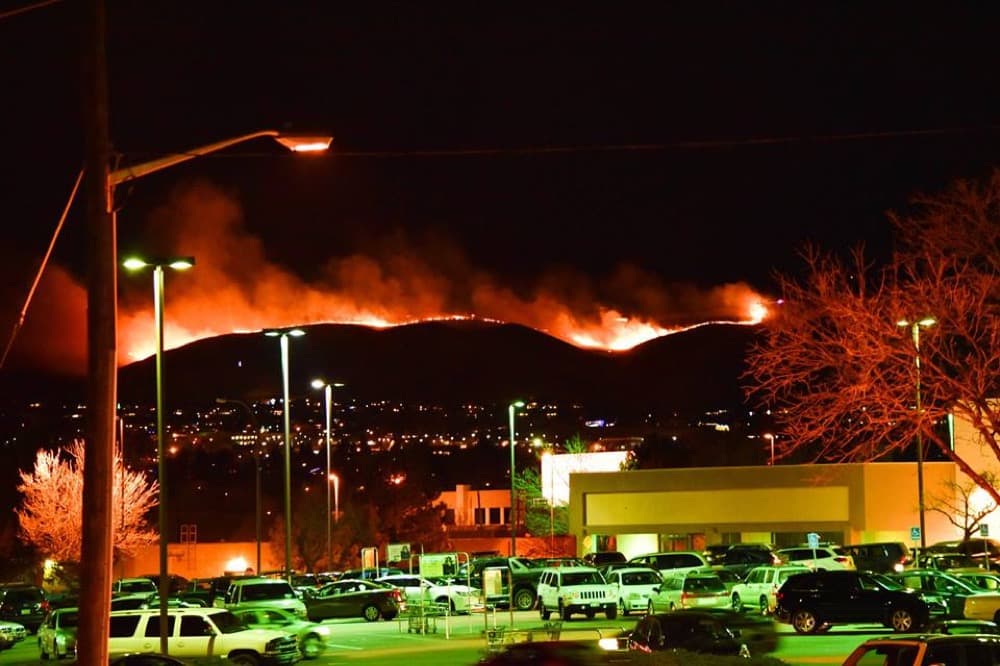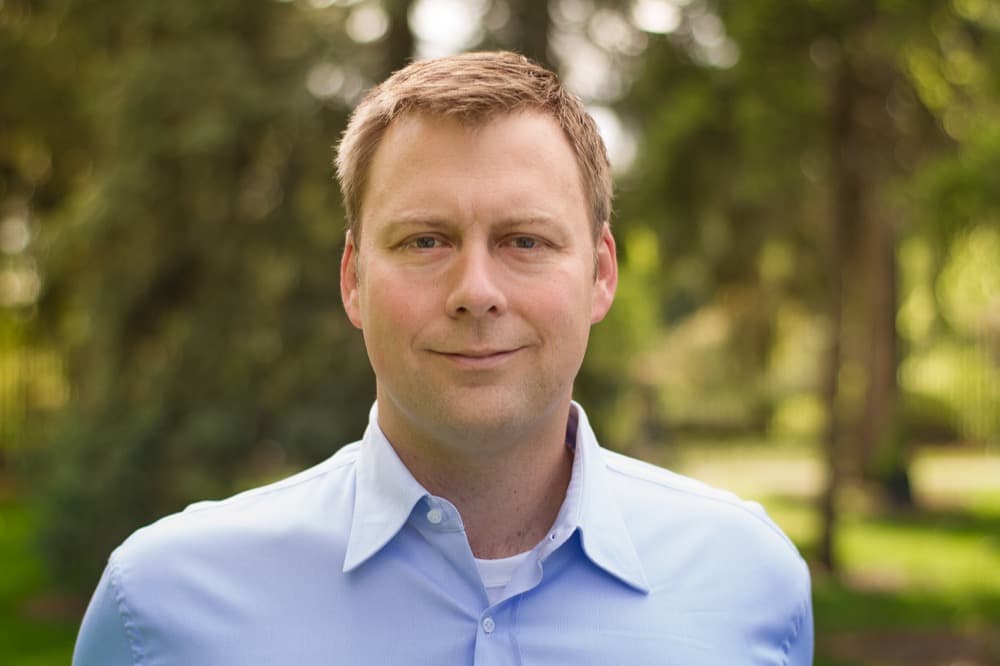STARTUP OF THE WEEK: renewwest

In this series, we visit Denver-metro, Boulder and Rocky Mountain region startups. Contact [email protected] or fill out the form below to be considered.
Wildfires have left countless thousands of acres of skeletal trees and bare ground across the mountains of Colorado. Former fighter pilot Michael Smith sees an opportunity there.
Every acre that burns means fewer trees.
Trees are one of our few natural defenses against climate change, as they're able to capture and store carbon dioxide, the greenhouse gas.
"We need to be sequestering carbon from the atmosphere in order to meet our climate change concerns," said Smith, the founder of the Denver startup RenewWest. "There’s really only one way to absorb emissions: That’s through photosynthesis."
The trouble is that it can take decades for burned forests to regrow, amplified by the fact that wildfires are burning longer and larger. In fact, 2015 was the biggest year for wildfires since World War II.
"All you have to do is drive up to Centennial, Gold Hill -- there are scars from fires 10 years ago, and there’s been absolutely no change," said Pete Dignan, CEO of Renewable Choice Energy in Boulder and an adviser to Smith.

Smith thinks the solution is to convince landowners to replant the land themselves.
The process of replanting a forest is simple -- "literally just people walking around with a basket full of seedlings and a shovel," said Smith, who majored in systems engineering at the U.S. Naval Academy and left active service with the U.S. Navy in 2014.
Unfortunately, it rarely makes financial sense to replant trees in the arid mountains of the West. "These landowners can’t afford to reforest, and they don’t have an incentive to," he continued. "Most of the American timber industry’s moved to the Southeast."
Instead, Smith's company uses an emerging new market to make forestry profitable in a new way. Still in its early phases, RenewWest is one of a few startups that makes "carbon credits" accessible to more landowners.
How the market works:
A company like Microsoft decides to go "carbon neutral" -- in other words, to balance out all the carbon it produces by consuming electricity and generally existing.
"They’ve calculated their corporate carbon footprint -- they know what their emissions are -- and depending on the rigor of their commitment, they’ll go out and offset those emissions," said Steve Ruddell, another advisor to RenewWest and an advocate for tropical reforestation.
Microsoft accomplishes that by buying carbon credits, which are basically certificates symbolizing a reduction of the amount of carbon in the world. They're governed by various organizations, treaties and agreements.
There are plenty of ways to capture or reduce enough carbon emissions to "create" a credit -- and in this case, it's by planting trees. The credits are set up in a way that incentivizes the landowner to keep the trees on the land even after they've matured, Smith said.
There's also a market for "compliance" credits -- basically, when a company is forced by law to offset its impacts. Smith is aiming for those too.
What it looks like in action:
It's a complex system but a simple business model, as Smith describes it.
"Plant trees on the land, let Mother Nature provide free sunshine and water, and come back in a few years," he said.
They're generally looking for parcels of more than 3,500 acres. RenewWest would fund the replanting and may share the credits revenue with the landowner. The landowner at the end of the term owns a piece of reforested land.
It's not unproven. Ruddell, the advisor, does much the same thing with a different geographical focus through his own company, CarbonVerde.
"You can basically provide an additional revenue source for a landowner, so that they don’t have the pressures of converting it to some other land use," Ruddell said. "... It doesn’t have anything to do with the politics of climate change. It has to do with, 'What’s best for me financially?'"
Smith's currently self-funded and seeking investors.
He's also working with Coalition for the Upper South Platte on a $550,000 U.S. Forest Service grant to create a carbon offset project in Colorado and to develop ways to use offsets to fund forest fire-reduction methods.
There are some risk factors, of course. Donald Trump's victory in the presidential election may signal the end of the Clean Power Plan, which could have created a lot more demand for carbon offsets. Smith said he wasn't counting on the CPP, but he thinks it would have generally helped to standardize and mature the carbon markets.
He argues that the mechanics of the market have been proven, pointing to the Clean Air Act's effect on pollution and acid rain. Offsets, he argues, could end up being a less volatile haven for capital, especially in markets where they're mandatory.
"All the mechanisms exist. We know how to plant trees," he said. "It’s a really low-tech thing."
And the fires are going to keep on burning.

Founder: Michael Smith
Employees: 1
Industry: Carbon offsets
Founded: 2015
Funding: Looking to raise $20 million
Offices: West Wash Park, Lower Highland












